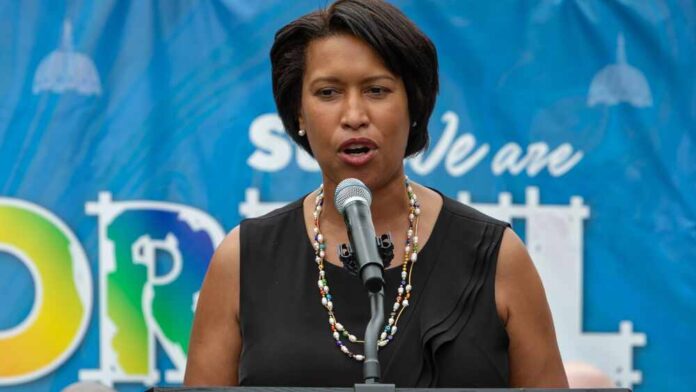
Washington, D.C., has started a juvenile curfew enforcement pilot program aimed at deterring young people from engaging in criminal activities such as robberies and carjackings. The program was enacted on the same day a judge denied bond for a 16-year-old girl accused of fatally stabbing another teen. The two events might seem interrelated, although the curfew plan was already under consideration before the stabbing incident.
Mayor Muriel Bowser (D) announced the program on Thursday, targeting “seven neighborhoods chosen by the Metropolitan Police Department that have experienced a substantial increase in the number of young people involved in criminal conduct.” The curfew prohibits minors under 17 from being in public areas from 11 p.m. to 6 a.m. on Sunday through Thursday and from 12:01 a.m. to 6 a.m. on Saturday and Sunday. Police officers are now required to take youth found breaking the curfew to “achievement centers” run by the Department of Youth Rehabilitation Services.
D.C. Begins Curfew Enforcement To ‘Deter Youths Committing Crime,’ Following Recent Stabbing https://t.co/8UahTy6d3K #OAN
— One America News (@OANN) September 3, 2023
So, how effective has the pilot program been so far? Well, that’s where the story takes a tragic turn. Just hours after the curfew was implemented, shots were fired in the 1300 block of 7th Street, leaving two teenagers dead and a third hospitalized in critical condition. It’s a grim reminder that while policies can be enacted quickly, changing the conditions that drive youth toward criminal activities is a far more complicated endeavor.
The idea of curfew enforcement is familiar and often comes with its own set of controversies. Civil liberties advocates argue that such policies can be overly punitive and stigmatize youth. In contrast, others point out that these restrictions don’t get to the root of the problem. Then again, with D.C. witnessing increased youth involvement in dangerous crimes, the argument for more robust enforcement measures gains weight. After all, curfews have proven effective in some cities at reducing juvenile crime and victimization.
Matthew Graves, the U.S. attorney for the District of Columbia, went further last week, saying his office will start prosecuting 16- and 17-year-old carjacking and robbery defendants for adult crimes. This shift in legal stance indicates that the issue of youth crime is being taken seriously at multiple levels of government. Yet, some may argue that this tactic could risk transforming young offenders into hardened criminals rather than rehabilitating them.
Bowser’s office contends that the new program “will relieve MPD officers of this responsibility, allowing them to return to patrol during crucial hours.” Before the pilot, officers had to stay at police stations until a minor’s parent or guardian could be contacted. Now, they can drop the youths off at “safe spaces” and return to patrol. Bowser also emphasized the need for family engagement, stating, “We want our kids home, we want them safe, and if they’re not—we want families working with us to get their kids the help they need.”
The curfew’s initial moments haven’t been encouraging, but it may be too early to deem the program a failure or success. What remains clear is that curfews alone aren’t a silver bullet. A comprehensive approach that involves community engagement, educational programs, and stronger family structures could be more effective.



























